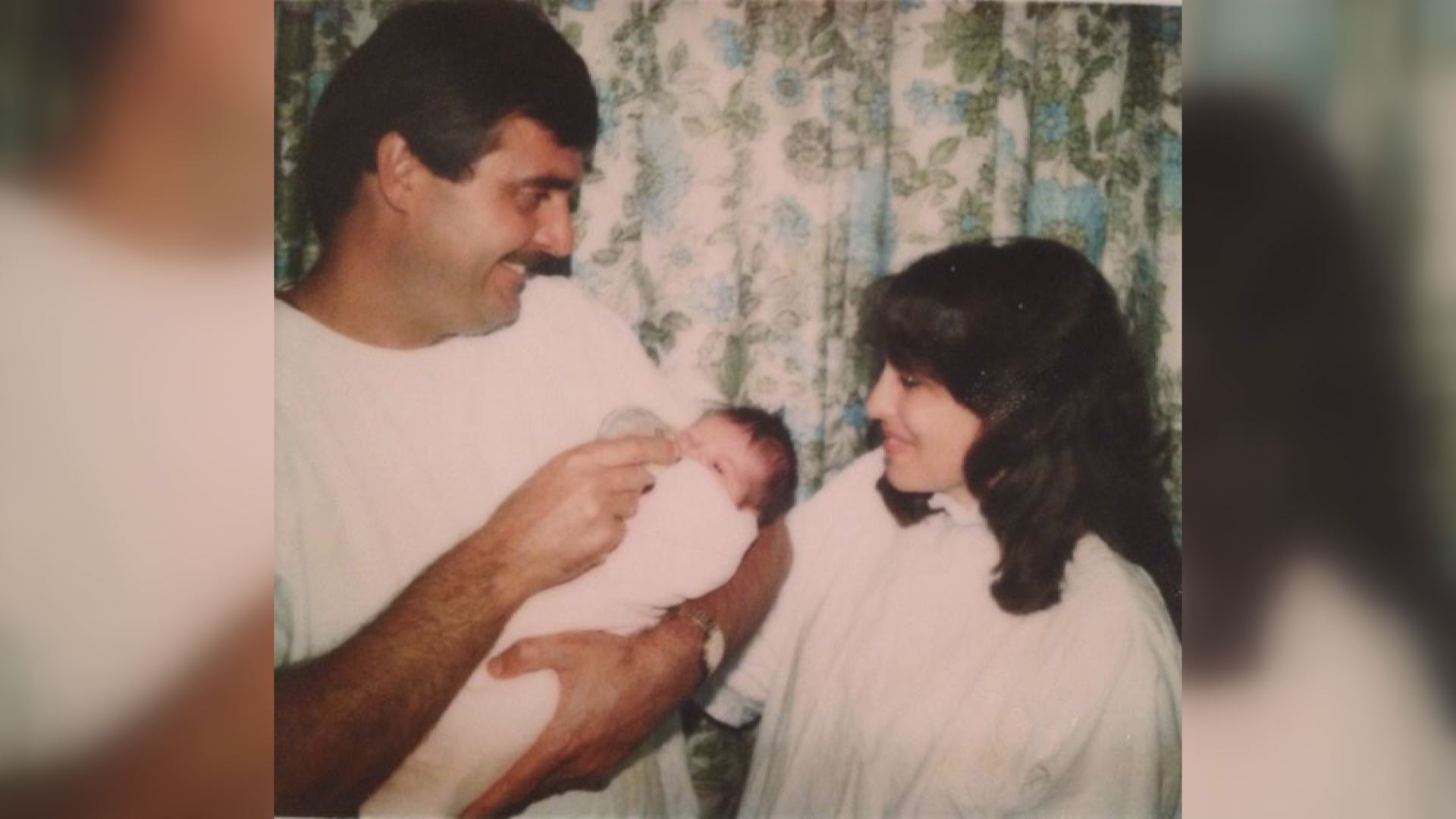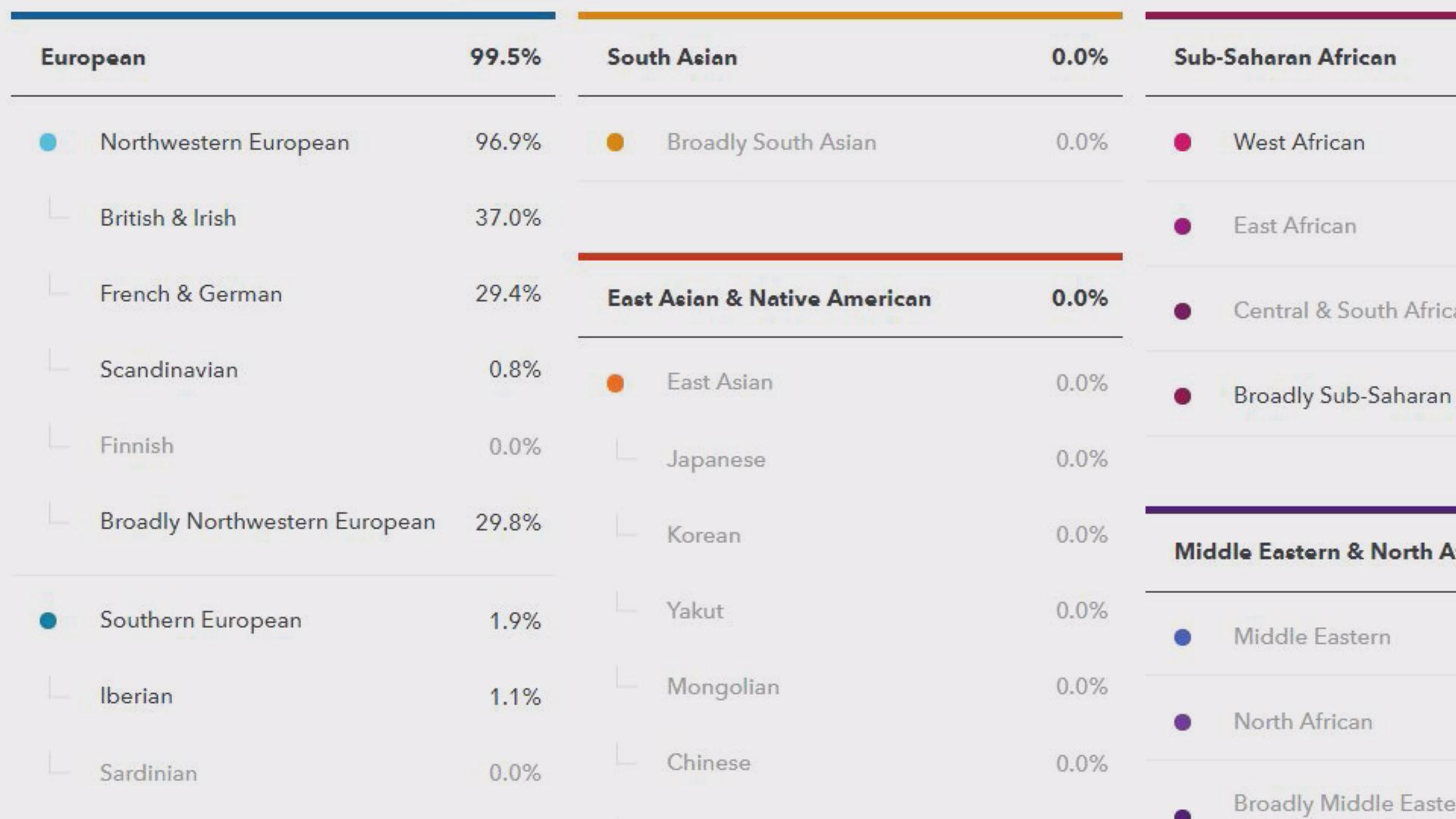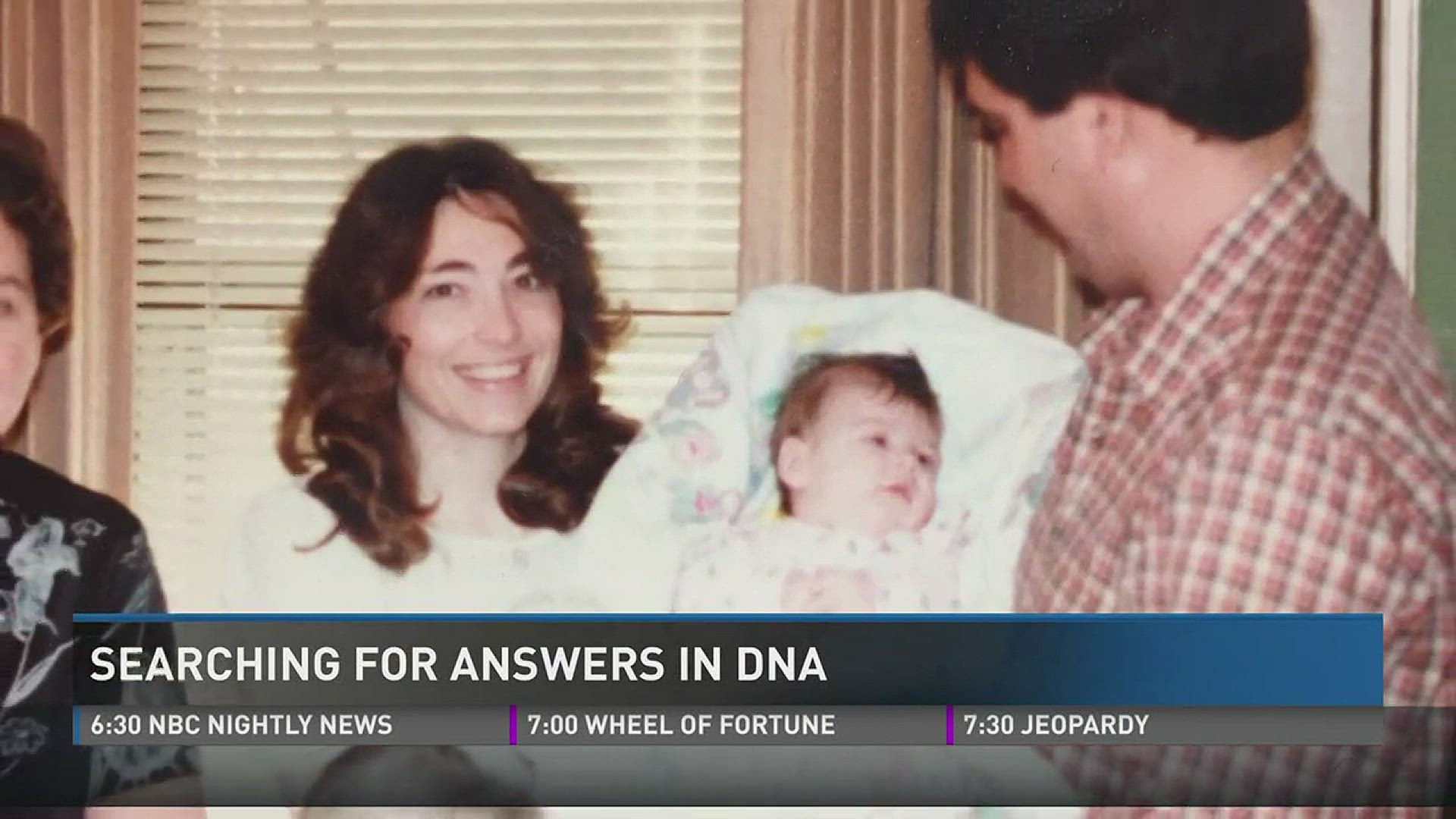Family tales and photos reveal only part of our ancestral story. A clearer picture of our past and even our future lies deeper – in our genes. That’s why WBIR Marketing Director Kara McFarland turned to science to fill in some blanks.
Kara always knew she was adopted as a newborn. She never gave it a second thought that she looked nothing like her dark haired, olive skinned adoptive parents. But as she grew, so did her curiosity.
“I went on a journey of discovery on my own. I didn’t tell them,” said Kara. "I was able to find in my basement the adoption file and I found some photos. One photo, I just couldn’t believe it. It was like looking at my reflection. ”

Kara’s curiosity eventually turned into questions about her background and her health based on her biological family’s history. They’re questions that can now be answered with at-home genetic testing kits you can buy online. A simple saliva sample can reveal what part of the world you come from, who you are related to and potential health risks.
Kara used the genetic testing kit “23andMe”. She spit into a small tube, answered some questions online, sealed up the kit and sent it off in the mail.
Four weeks later Kara’s genetic findings were in her computer inbox. It revealed she is 96.8% Northwestern European, among others.
“There is British, Irish, a little French and German. It says 1% Scandinavian. A lot of people ask me if I’m Scandinavian but I don’t know anything about that. I’m excited to learn," she said.

The test also gives Kara heads up on variants in her genes that put her at risks of certain health conditions. It turns out, she has a slightly increased risk of developing late onset Alzheimer’s Disease.
“The only thing you can do is do your research and practice a healthy lifestyle,” said Kara.
Now armed with information, Kara has a glimpse into her future and a clearer picture of her past.
“I still identify as Yugoslavian and American Indian. That’s what I was raised to know. Now I can research and learn a little bit more about those areas and feel a connection to a people I haven’t felt a connection to," she said.
Tuesday on 10News at 6, an expert will share how these test kits work and the accuracy of the findings.

